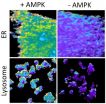(Press-News.org) Men give more money through fundraising websites after seeing that other men have donated large amounts and when the fundraiser is an attractive woman, according to new UCL and University of Bristol research.
The scientists say this response by men is unlikely to be conscious and could have an evolutionary function as theories predict that generous actions can honestly signal hidden qualities, such as wealth or desirable personality attributes, to potential partners.
Co-author Dr Nichola Raihani from UCL (Life Sciences), said: "We looked at why people behave generously in real-world situations, even when there is no obvious benefit to them in doing so. We found a remarkably strong response with men competing to advertise generosity to attractive women, but didn't see women reacting in a similar way, showing competitive helping is more a male than female trait."
The study, published today in Current Biology and funded by the Royal Society, found that people on average give about £10 more after seeing others' large donations. When the large donations are made by men to attractive female fundraisers, subsequent donations from other men increase by a further £28 on average.
The researchers reviewed 2,561 fundraising pages from the 2014 London marathon and found 668 that met the study criteria. Each needed to include an image of the fundraiser whose gender was identified and attractiveness verified independently. The pages also had to feature large donations from people who could also be assigned a gender to measure the responses of subsequent donors. A large donation was defined as double the mean donation on the page and at least £50; it was typically around £100.
For each fundraising page, the researchers calculated the average donation using up to 10 donations before a large sum was given. The responses of up to 15 donors following the large donation were then studied in 12 categories defined by the gender and attractiveness of the fundraiser, and the gender of the person who made the large donation.
Each fundraising page was shown to four independent reviewers who rated how attractive they found the fundraiser on a scale of 0-10 with 10 being 'extremely attractive'. For both men and women, fundraisers who were smiling were perceived to be more attractive than those who weren't and received more donations.
Co-author Professor Sarah Smith from the University of Bristol, said: "Fundraising pages provide a fascinating real-life laboratory for looking at charity donations. Previously, we saw how donors responded to how much other people had given. Now we see that the response depends - albeit sub-consciously - on the fundraiser's attractiveness. On a practical level, there are implications for how fundraisers can raise more money for charities. To London marathon fundraisers, I would say get your generous friends to donate early and make sure you put a good picture up, preferably one in which you are smiling!"
Dr Raihani, added: "It's fascinating that evolutionary biology can offer insights into human behaviour even in the modern world. People are really generous and their reasons for giving to charity are generally not self-serving but it doesn't preclude their motives from having evolved to benefit them in some way. Take eating for example, our primary drive is to dispel the feeling of hunger, which is pleasurable, but the evolutionary purpose is to make sure we don't starve and die. Generous behaviours can be seen in a similar way - the motivation for performing them doesn't have to be the same as the evolutionary function."
INFORMATION:
Notes to Editors
For a copy of the paper or to speak to the researchers, please contact Dr Rebecca Caygill in the UCL press office, T: +44 (0)20 3108 3846 / +44 (0)7733 307 596, E: r.caygill@ucl.ac.uk
To interview Professor Sarah Smith please contact Caroline Clancy, Press Officer, University of Bristol, T: +44 (0) 117 928 8086 /+44 (0)7776 170238, E: caroline.clancy@bristol.ac.uk
Raihani, N. and Smith, S., 'Competitive helping in online giving', will be published in Current Biology on 16 April 2015 and is under embargo until 5pm London time / 12pm noon US Eastern Time on Thursday 16 April 2015.
A nerve neglected in today's era of molecular and genetic analysis has yielded a surprising secret. A handful of neurons control breathing in a fine-tuned but powerful way, scientists have discovered in mice. Among these sensory neurons, two types are dedicated to two specific respiratory functions.
The findings, published in Cell, suggest new ways of considering clinical conditions related to the vagus nerve.
The team, led by Stephen Liberles, Harvard Medical School associate professor of cell biology, has effectively deconstructed the vagus nerve, a key connection ...
The enzyme AMPK initiates a dizzying array of cellular activities, from breaking down worn-out cellular parts to turning on energy production. How does a single protein, activated by a single switch, fulfill so many different tasks without getting them mixed up? To get at such a complex question, cell biologists at Johns Hopkins designed several molecular tools that allowed them to watch, measure and manipulate the activity of the enzyme AMPK in individual compartments within the cell. The new tools have confirmed that at least some of AMPK's ability to multitask comes ...
Angiogenesis inhibitors--a widely used class of cancer drugs designed to shrink tumors by preventing them from forming new blood vessels--often work in the short term, but usually become ineffective within months. Now, a team led by UC San Francisco scientists has discovered a possible reason, one that could lead to a way to address the problem and prevent cancer relapse.
Working with laboratory models of pancreatic and breast cancer, the scientists found that myeloid cells, which originate in bone marrow and are part of the body's first-line of defense--the so-called ...
How does climate change affect the occurrence and distribution of species? This is a key question in the climate debate, and one that is hard to answer without information about natural variation in species abundance. Now researchers from Uppsala University can, for the first time, give us a detailed picture of natural variation through a major study published today in the leading scientific journal Current Biology.
The impact of climate change on species occurrence and distribution is a central issue in the climate debate, since human influence on the climate risks posing ...
The nutrients excreted by fish in their "pee" may be critical to the health of coastal ecosystems. But knowing whether generalizations can be made about how to predict these nutrient levels in various ecosystems has vexed researchers - until now.
In a paper published in Proceedings of the National Academy of Sciences, North Carolina State University associate professor Craig Layman and colleagues show that ecologists can better predict the rates of how these chemical nutrients are transferred by fish if they know the various fish species living in an ecosystem, along ...
An international team of scientists, led by researchers at University of California, San Diego School of Medicine, have found genetic overlap between Alzheimer's disease (AD) and two significant cardiovascular disease risk factors: high levels of inflammatory C-reactive protein (CRP) and plasma lipids or fats. The findings, based upon genome-wide association studies involving hundreds of thousands of individuals, suggest the two cardiovascular phenotypes play a role in AD risk - and perhaps offer a new avenue for potentially delaying disease progression.
The findings ...
A potentially game-changing breakthrough in artificial photosynthesis has been achieved with the development of a system that can capture carbon dioxide emissions before they are vented into the atmosphere and then, powered by solar energy, convert that carbon dioxide into valuable chemical products, including biodegradable plastics, pharmaceutical drugs and even liquid fuels.
Scientists with the U.S. Department of Energy (DOE)'s Lawrence Berkeley National Laboratory (Berkeley Lab) and the University of California (UC) Berkeley have created a hybrid system of semiconducting ...
CORVALLIS, Ore. - A national survey suggests that slightly more than half of the older adults in the United States are now taking a daily dose of aspirin, even though its use is not recommended by the Food and Drug Administration for most people who have not yet had a heart attack or stroke.
The analysis was published today in the American Journal of Preventive Medicine. It observed that aspirin use is continuing to surge, especially among adults who are using it for "primary prevention," meaning in order to prevent an initial cardiovascular event, and in some cases to ...
The psychological impact and private agony of infertility must be carefully considered by healthcare professionals, suggests a new review, published today (Friday 10 April) in The Obstetrician & Gynaecologist (TOG). The review identifies infertility as a complex state and life crisis and sets out the dangers of neglecting the emotional impact of involuntary childlessness and viewing it solely in biological or medical terms.1
The article provides an introduction to infertility counselling in the UK, within the context of fertility treatment. This includes an explanation ...
Analysis of the longer-term influence of menopausal hormone therapy on breast cancer incidence in two Women's Health Initiative (WHI) clinical trials suggests a pattern of changing influences over time on breast cancer, according to an article published online by JAMA Oncology.
Use of menopausal hormone therapy decreased dramatically after reports of increased breast cancer risk with estrogen plus progestin from the WHI randomized clinical trial followed by the Million Women Study observational analysis. Following the initial WHI reports, decreases in both combined estrogen ...


